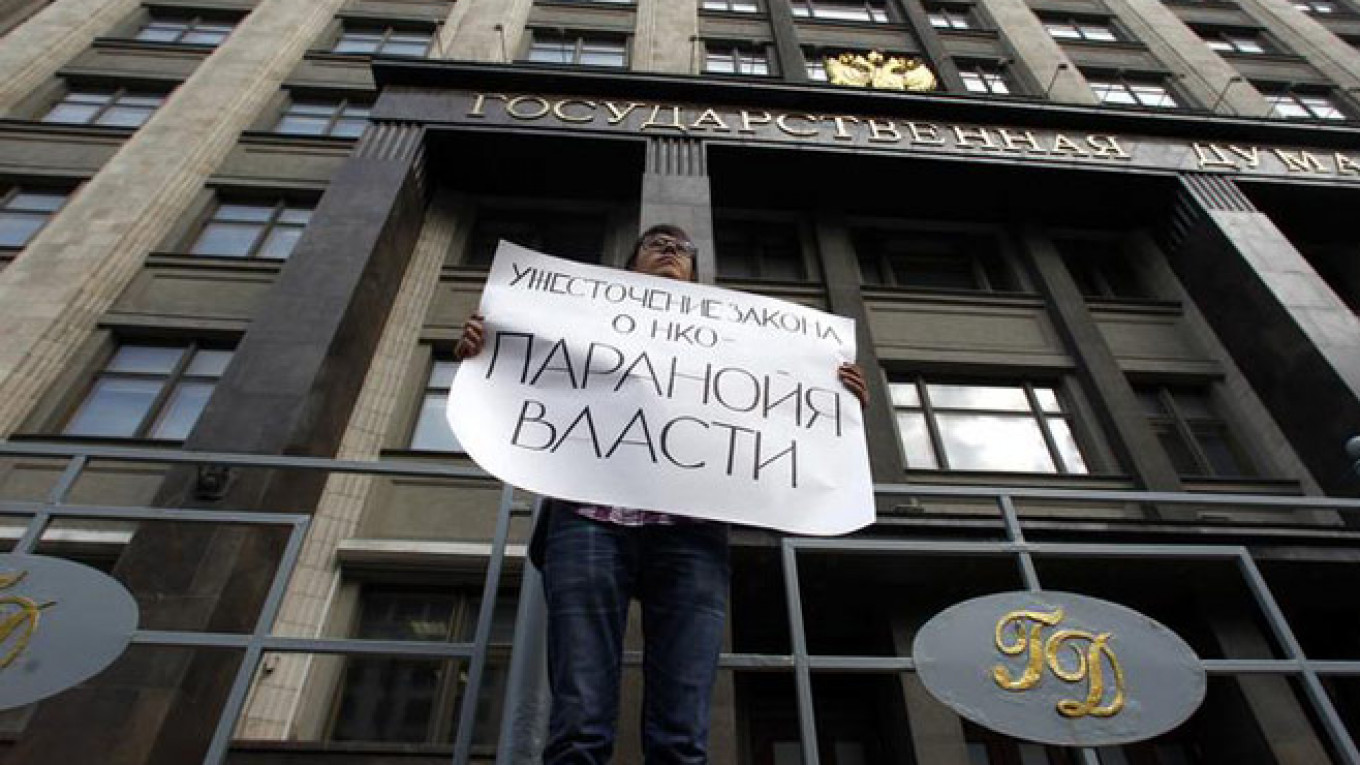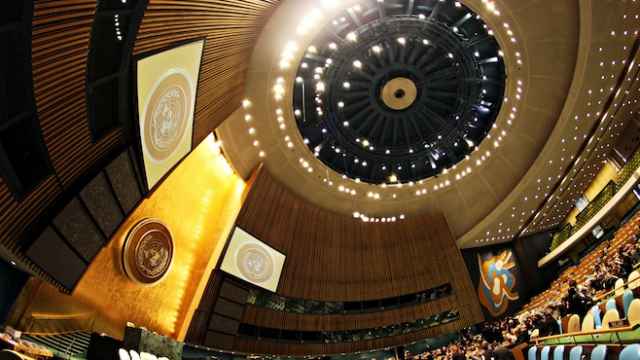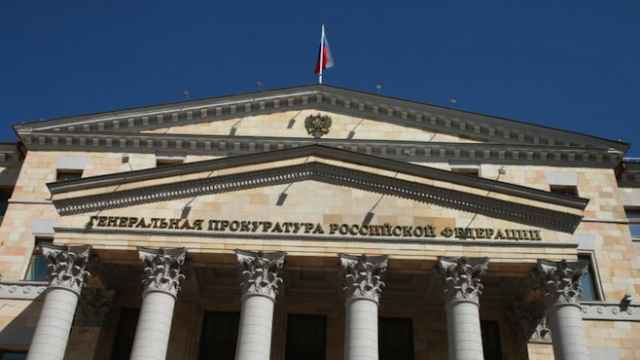Even as Russia's beleaguered NGOs were struggling to come to terms with the "foreign agents" label, a sweeping new law against "undesirable" organizations has dealt them yet another blow.
The new law, signed by President Vladimir Putin in May, brands as "undesirable" all foreign and international organizations seen by Russian prosecutors to pose a threat to the country's constitution, defense, and national security.
The law's latest victims: two foundations set up by U.S. billionaire philanthropist George Soros and the U.S.-Russia Foundation for Economic Advancement and the Rule of Law, or USRF.
Without even so much as a court order, the NGOs lost the right to work, publish material, organize rallies or use local bank accounts in Russia. Their employees risk punishments ranging from a fine to up to a six-year prison term for any violations of the restrictions.
The Russian Justice Ministry's online registry of "undesirables" already listed the U.S. National Endowment for Democracy. Another American NGO, the MacArthur Foundation, fled Russia in July, preempting inclusion in the "undesirables" registry after being added to a "patriotic stop-list" compiled by Russia's upper house of parliament.
Tanya Lokshina, Russia program director at the Moscow branch of Human Rights Watch — which has worked in Russia for 24 years — said the clampdown was "unprecedented in modern Russia."
But Alexander Tarnavsky, one of the authors of the law and a State Duma deputy, said it was a necessary national security measure in response to "unfriendly actions" by foreign governments.
Putin has often portrayed NGOs as serving foreign countries ' interests by attempting to destabilize society in the hope of triggering "color revolutions" in former Soviet states, most recently in Ukraine.
At a meeting with the FSB this year, Putin warned that Western secret services were using NGOs to destabilize Russia ahead of parliamentary elections in 2016 and the upcoming presidential election in 2018.
Tarnavsky said Russia had for a long time ignored the problem of foreign interference because it was looking to improve ties.
"But at some point you have to respond," he said, "or you'll be perceived as weak."
Since 2012, a so-called "foreign agents" law already requires NGOs to register as foreign agents if they receive funding from abroad and engage in political activities.
The phrasing of the "foreign agent" label was no accident — it is a term rooted in the national memory as a Soviet-era equivalent for "spy."
The Justice Ministry's foreign agents registry listed 89 organizations in late December . Four thousand out of Russia's around 226,000 registered NGOs receive funding from abroad, Alexander Svinin, head of the Civic Chamber's "Perspektiva" project said.
The "foreign agents" label obliges NGOs to mark their publications and generally leads to increased government checks , but does not ban their work.
In contrast, the "undesirables" law effectively paralyzes the targeted organization. It is also limited to foreign, not Russian, organizations — even though Tarnavsky said the two laws were intertwined. Many of the NGOs that are considered "foreign agents" are being funded by the "undesirables," he said.
"We tried to close off funding for Russian organizations that are linked to an ideological battle — the battle for power," he said.
Meanwhile, rights activists have decried the legislation for, once again, clamping down on NGOs at home. Under the law, Russian organizations are forbidden from maintaining any ties with the "undesirables," and can be held criminally liable if they do.
Lokshina said that the law was aimed at preventing any activity that could pose a threat to the Kremlin.
"The real goal is to cut off Russian civil activists from their partners, their foreign friends and leave them isolated," she said.
Tarnavsky did not exclude that new measures could follow.
"Maybe even more needs to be done in the future, then we will do so," he said.
Contact the author at [email protected]
A Message from The Moscow Times:
Dear readers,
We are facing unprecedented challenges. Russia's Prosecutor General's Office has designated The Moscow Times as an "undesirable" organization, criminalizing our work and putting our staff at risk of prosecution. This follows our earlier unjust labeling as a "foreign agent."
These actions are direct attempts to silence independent journalism in Russia. The authorities claim our work "discredits the decisions of the Russian leadership." We see things differently: we strive to provide accurate, unbiased reporting on Russia.
We, the journalists of The Moscow Times, refuse to be silenced. But to continue our work, we need your help.
Your support, no matter how small, makes a world of difference. If you can, please support us monthly starting from just $2. It's quick to set up, and every contribution makes a significant impact.
By supporting The Moscow Times, you're defending open, independent journalism in the face of repression. Thank you for standing with us.
Remind me later.






